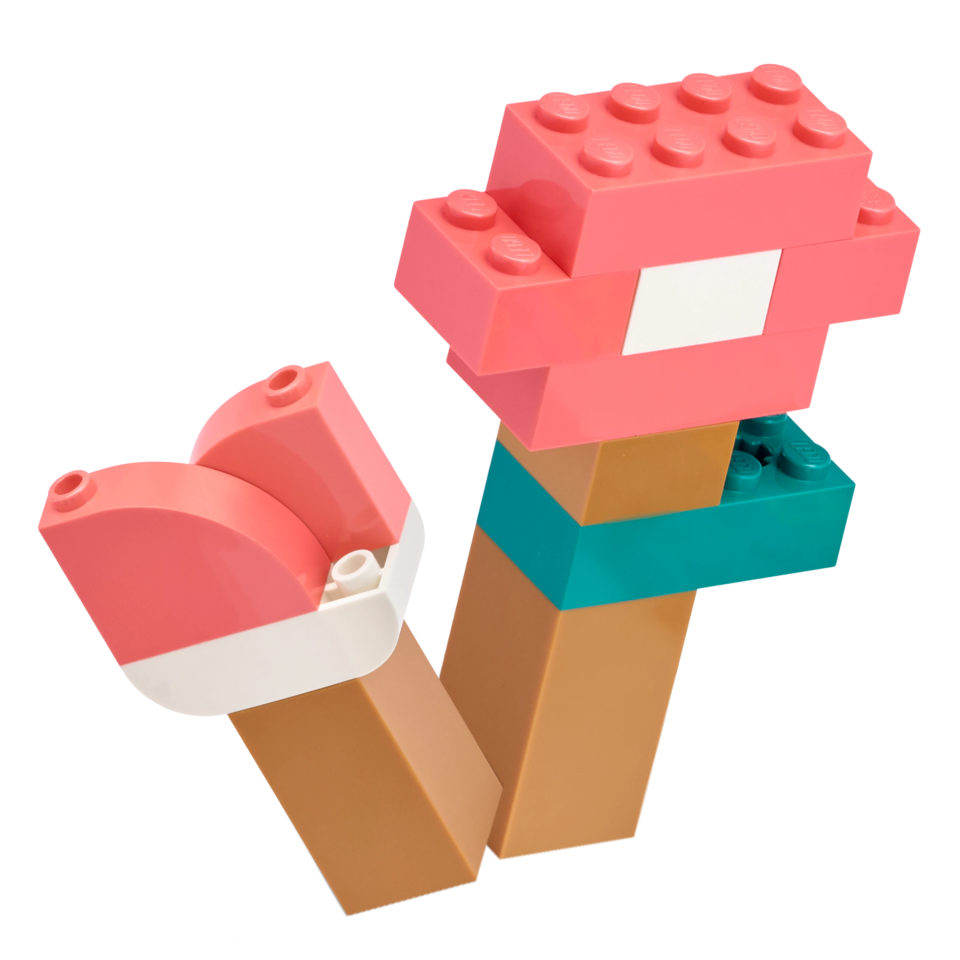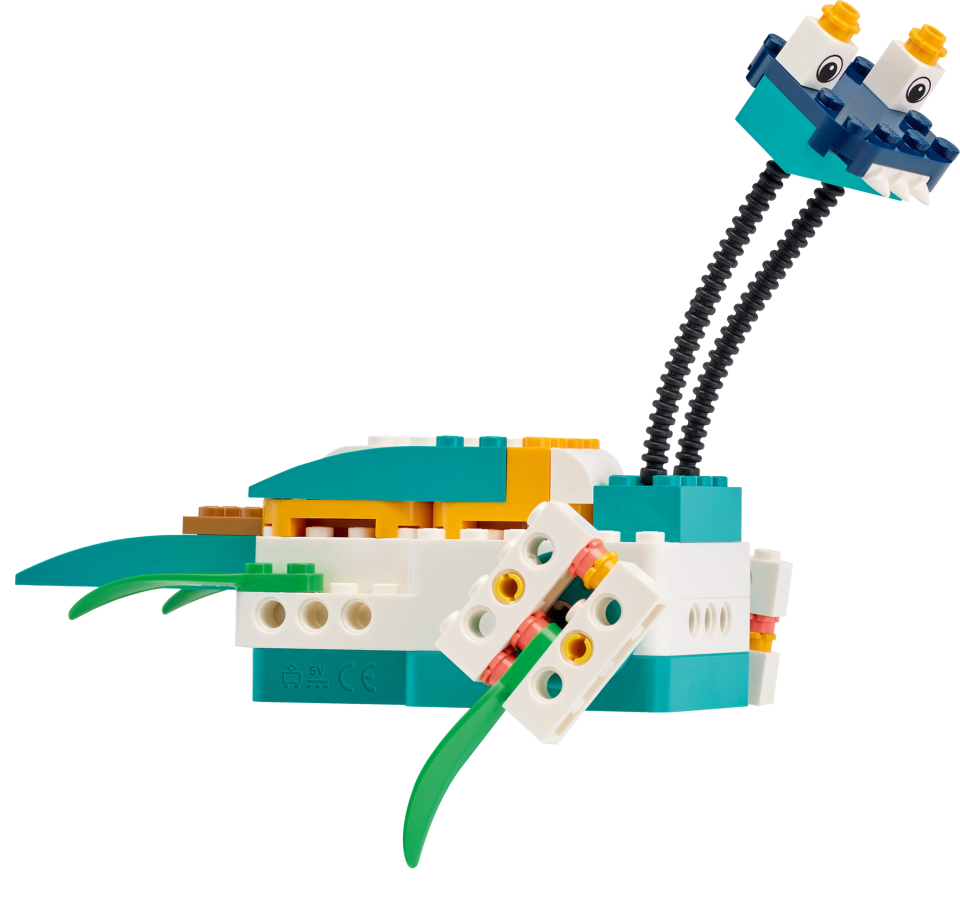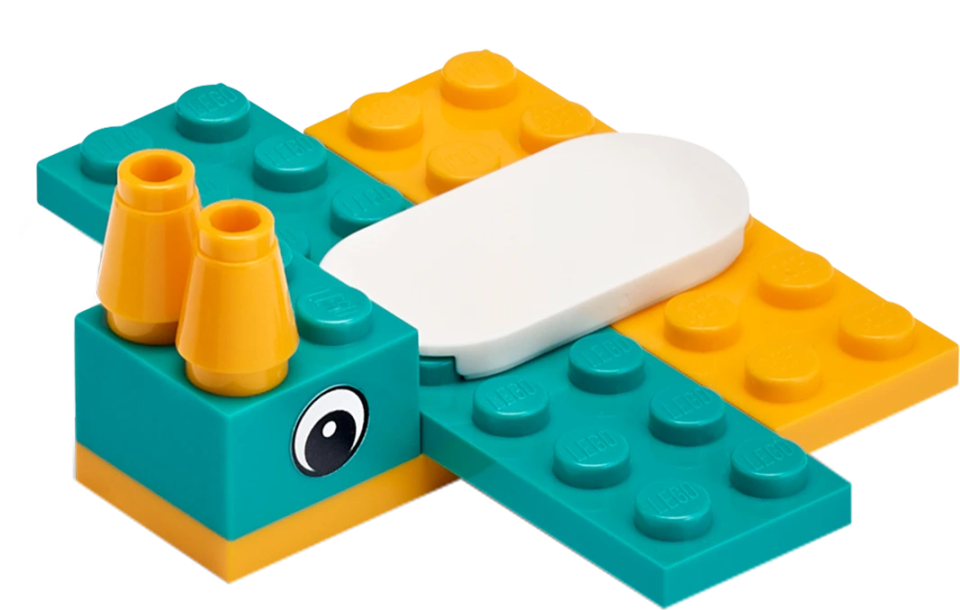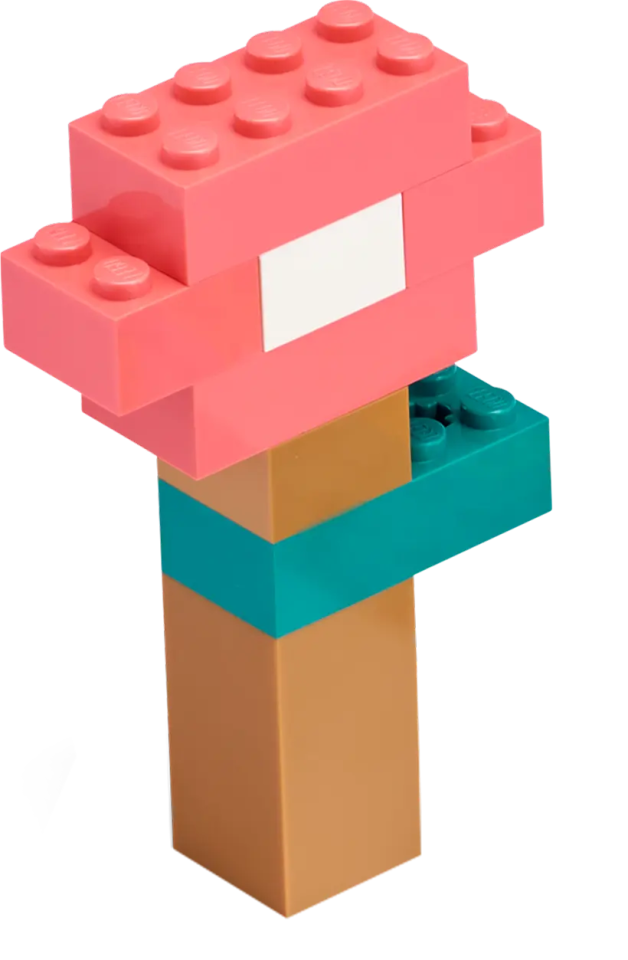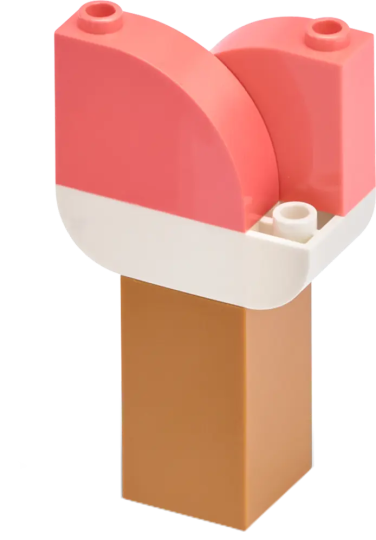SPIKE™ Essential
Junior Pinball
Try Sofie’s junior pinball game and upgrade it to make it more unpredictable!
30-45 min.
Beginner
Years 3-5
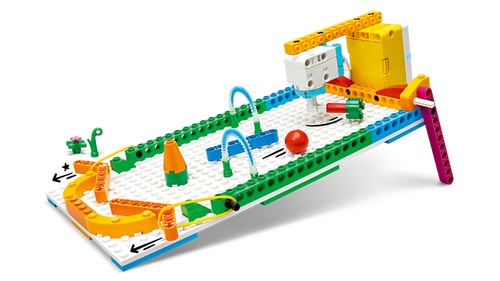
Prepare
- Review the Junior Pinball lesson in the LEGO® Education SPIKE™ App.
- If you feel that it would be beneficial, pre-teach these related vocabulary words: bumper, flipper, obstacle, predictable, transfer and unpredictable.
- Consider the abilities and backgrounds of all your pupils. Differentiate the lesson to make it accessible to everyone. Please refer to the Differentiation section below for suggestions on how to do this.
- If time permits, plan and facilitate the language arts extension. Please refer to the Extension section below for further information.
Engage
(Whole Class, 5 Minutes)
- Facilitate a quick discussion about energy conversion.
- Talk with your pupils about a spinning top.
- Ask questions like these: Which type of energy does a spinning top have before it starts spinning? Which type does it have while it’s spinning? How can this energy be converted from one form to another?
- Introduce your pupils to the story’s main characters and the first challenge: starting the junior pinball game.
- Distribute a brick set and a device to each group.
Explore
(Small Groups, 30 Minutes)
- Have your pupils use the LEGO® Education SPIKE™ App to guide them through their first challenge:
- Create and test the program that starts the junior pinball game.
- Have your pupils iterate and test their models to complete the next two challenges in the app:
- Modify the program to make the junior pinball game more unpredictable.
- Upgrade the junior pinball game by adding different obstacles to it.
- You can find coding and building help in the Tips section below.
Explain
(Whole Class, 5 Minutes)
- Gather your pupils together to reflect on their completed challenges.
- Ask questions like these: What refinements did you make in order to change how or when the game converted potential energy to kinetic energy? How did the different obstacles affect the energy conversion?
Elaborate
(Whole Class, 5 Minutes)
- Prompt your pupils to discuss and reflect on the process of refining their solutions to convert one type of energy into another.
- Ask questions like these: How did the type of obstacle affect the ball's energy? How could you design an obstacle to make the conversion of energy visible?
- Have your pupils tidy up their workstations.
Evaluate
(Ongoing Throughout the Lesson)
- Ask guiding questions to encourage your pupils to ‘think aloud’ and explain their thought processes and reasoning in the decisions they’ve made while building and programming their models.
Observation Checklist
- Measure your pupils’ proficiency in refining a solution that converts energy from one form into another.
- Establish a scale that suits your needs. For example:
- Requires additional support
- Can work independently
- Can teach others
Self-Assessment
Have each pupil choose the brick that they feel best represents their performance.
- Yellow: I think that I can refine a solution that converts energy
from one form into another. - Blue: I can refine a solution that converts energy from one form into
another. - Green: I can refine a solution that converts energy from one form
into another, and I can also help a friend to do it.
Peer Feedback
- In their small groups, have your pupils discuss their experiences of working together.
- Encourage them to use statements like these:
- I liked it when you…
- I'd like to hear more about how you…
Tips
Coding Tips
- After your pupils have completed their first challenge, they'll be provided with three Inspiration Coding Blocks, which will help them to modify their programs.
- The Inspiration Coding Blocks are intended to spark their imaginations as they experiment to find their own solutions.




Model Tip
- After your pupils have completed their second challenge, they’ll be provided with three Inspiration Images and an open-ended prompt, which will help them to improve their models.
- The Inspiration Images are meant to help spark their imaginations as they experiment and change their models.
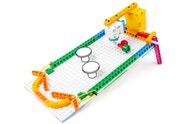

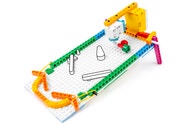
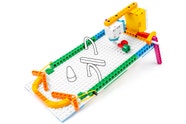
There are no specific building instructions for this challenge.
Differentiation
Simplify this lesson by:
- Selecting one Inspiration Image to help your pupils to change their models
- Limiting the number of obstacles that must be created and tested
Increase the difficulty by:
- Including another motor or sensor in the game
- Exploring new and different Coding Blocks in the program
Extension
- Have your pupils research the rules of pinball and write the rules for their own junior pinball games, including how to score points and win the game.
If facilitated, this will extend beyond the 45-minute lesson.
Language Arts: National Curriculum English En4/1 Spoken Language e, g & i
Teacher Support
The pupils will:
- Apply their ideas in order to refine a solution that converts energy from one form to another
- Test the solution to improve and refine its function
- Engage effectively in a range of collaborative discussions
(one for every two pupils)
- LEGO® Education SPIKETM Essential Set
- Device with the LEGO® Education SPIKE™ App installed
National Curriculum
Design and Technology
DT2/1.1b
- generate, develop, model and communicate their ideas through discussion, annotated sketches, cross-sectional and exploded diagrams, prototypes, pattern pieces and computer-aided design
DT2/1.3b - evaluate their ideas and products against their own design criteria and consider the views of others to improve their work
DT2/1.4b - understand and use mechanical systems in their products
English
En4/1i
- participate in discussions, presentations, performances, roleplay/improvisations and debates
En4/1k - consider and evaluate different viewpoints, attending to and building on the contributions of others
En4/1e - give well-structured descriptions, explanations and narratives for different purposes, including for expressing feelings.
En4/1g - use spoken language to develop understanding through speculating, hypothesising, imagining and exploring ideas
En4/1i - participate in discussions, presentations, performances, roleplay/improvisations and debates
